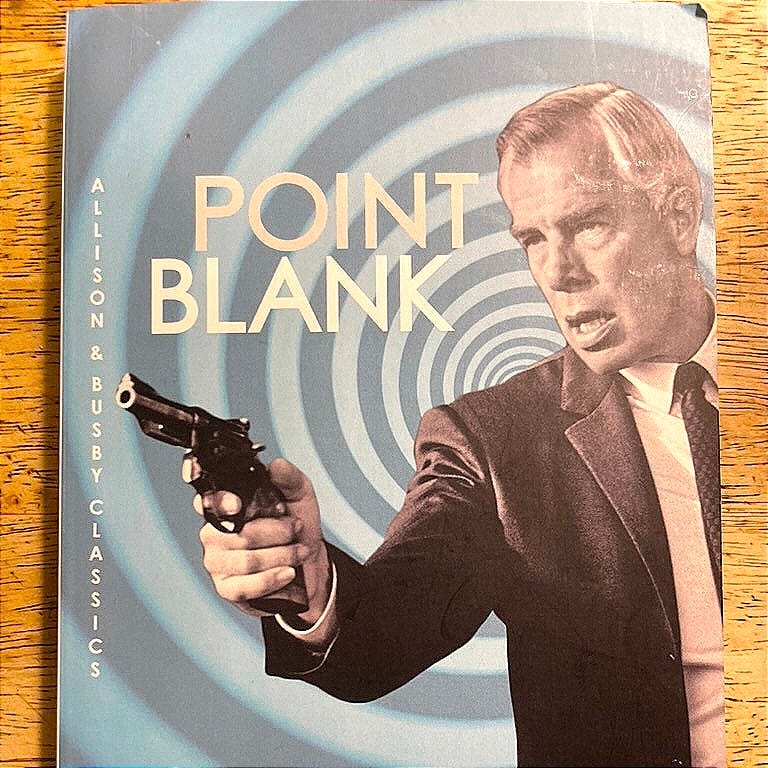You Re-Read 'The Hunter' at Your Own Risk
Was the original Parker novel actually that good?
When I was in college, I made a point of doing my Calculus homework on the fourth floor of the Regenstein Library, in a cubicle beside the featureless gray doors leading to the stacks. Whenever I felt the urge to procrastinate—which was often, because differentials and vectors aren’t my thing—I would head into the stacks and select a volume at random from the nearest shelves, which is why I know a curious amount about the Waco siege, Roman war tactics, and early submersibles.
One of those shelves also contained the complete works of Richard Stark, Donald Westlake’s dark pseudonym. Over the course of a month, I read every Stark novel published by that date, starting with “The Hunter.” I loved how Parker, the enigmatic and murderous thief at the center of most of those Stark books, didn’t wrestle with his conscience—he saw what he wanted and took it, and wrecked anyone who got in his way. It was a refreshing change from the mountains of mysteries and thrillers where antiheroes constantly whine about morality.
Although I’ve read several Parker novels repeatedly, I hadn’t revisited “The Hunter” in 20 years—until a friend in Mississippi stumbled upon a yellowed paperback edition in a used bookstore and mailed it to me. The paperback’s a movie tie-in, so the cover features Lee Marvin, who played Parker (renamed Walker) in “Point Blank” (1967), the first adaptation of “The Hunter.” It’s sitting on my noir shelf right now, Lee and his big gun intimidating all the other cover art around him.
I re-read the book in about three hours, stunned at how much I’d misremembered. Parker in the subsequent novels is cooler than an industrial freezer; even when the heist goes wrong, he might allow himself an instant of irritation at most before he resumes breaking noses and figuring out who to kill first. As Stephen King once wrote (via Thad Beaumont, the protagonist of the severely underrated “The Dark Half”): “Parker is really more like a killer robot than a man.”
But the Parker in “The Hunter” boils over with anger and hurt, drinks to almost hilarious excess, commits his share of unforced errors, and—damnit—even comes across at moments as a little whiny. Sure, his character flaws help ratchet up the suspense, but he’s a far cry from the mercilessly efficient Parker of the later novels, which I found… disconcerting. Perhaps Westlake realized he was on the wrong track, because the later novels stripped Parker down to virtually nothing, a cool haiku of violence.
If you want to hear something mildly sacrilegious, at least in the context of crime fiction, I’m coming around to the idea that “Point Blank” is artistically superior to the source material; it’s tighter, for one thing, neatly excising some of the meandering sections of “The Hunter” in favor of Lee Marvin throwing people off roofs or even (in one memorable scene) saying nothing at all.
Seriously, even the man’s walk is terrifying.
It’s also probably worth mentioning “Payback,” the 1999 adaptation starring Mel Gibson. The theatrical release has severe flaws, thanks to extensive reshoots mandated by Gibson to make him more sympathetic (just about the only good thing is the scene where he crawls through the back seat of a car, like a 1970s Ford giving birth to a chain-smoking and highly irate Aussie). The unreleased director’s cut, which you can sometimes find on a dusty shelf at your nearest dead-media emporium, is a cheerfully nasty piece of work that channels that Richard Stark spirit; the climax takes the book’s drifty, largely suspense-free ending and makes it lean, mean, and even a little bit ironic:
Anyway, you re-read your favorite novels at your own risk, especially if it’s been decades.



I love the theatrical release of Payback. I’m willing to die on that hill!
Never read Westlake’s novels, but Marvin is ferocious.